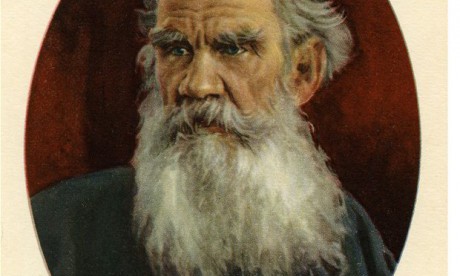“The most important knowledge is that which guides the way you lead your life.”
On March 15, 1884, Leo Tolstoy, wrote in his diary:
“I have to create a circle of reading for myself: Epictetus, Marcus Aurelius, Lao-Tzu, Buddha, Pascal, The New Testament. This is also necessary for all people.”
So he set out to compile “a wise thought for every day of the year, from the greatest philosophers of all times and all people” — aflorilegium five centuries after the golden age of florilegia and a Tumblr a century and a half before the golden age of Tumblr, a collection of famous words on the meaning of life long before the concept had become a cultural trope.
The following year, he wrote to his assistant, describing the project:
“I know that it gives one great inner force, calmness, and happiness to communicate with such great thinkers as Socrates, Epictetus, Arnold, Parker. … They tell us about what is most important for humanity, about the meaning of life and about virtue. … I would like to create a book … in which I could tell a person about his life, and about the Good Way of Life.”
Tolstoy spent the next seventeen years collecting those pieces of wisdom.
In 1902, in his late seventies, seriously ill and confronting mortality, he finally sat down to write the book under the working title A Wise Thought for Every Day. Once he sent the manuscript to his publisher, he returned to the diary and exhaled:
“I felt that I have been elevated to great spiritual and moral heights by communication with the best and wisest people whose books I read and whose thoughts I selected for my Circle of Reading.” Continue reading
Sources
- brain pickings
- Image: The Telegraph
